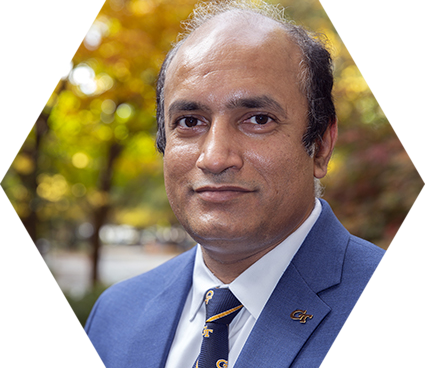Turbulent mixing in shock-driven variable-density flow-- from supernova explosion to fusion system
| Event Date: | May 5, 2022 |
|---|---|
| Priority: | No |
| College Calendar: | Show |
Seminar: Thursday, May 5 - 10:30 AM ME2004
Turbulent mixing in shock-driven variable-density flow-- from supernova explosion to fusion system
Abstract:
Mixing is central to several important phenomena in nature and engineering. Rayleigh-Taylor (RT) and Richtmyer-Meshkov (RM) driven wrinkles at the interface of materials lie at the heart of an overarching science for material mixing that stretches from oil trapping salt domes, that develop over tens of millions of years, to degradation of Inertial Confinement Fusion (ICF) capsule performance in 10 -12 ns. RT and RM are insidious instabilities that start with exponential growth (power-law function of time for RM) of small-scale perturbations and end in a fully turbulent mixing process. Shock tube experiments allow us to explore the effects of Mach number and initial conditions on unsteady variable-density mixing. I will describe here the results from recent experiments which quantifies the effect of initial conditions on the transition to turbulence in RMI-driven flows The evolving density and velocity fields are measured simultaneously using high spatial resolution planar laser-induced fluorescence (PLIF) and particle image velocimetry (PIV) techniques. We have acquired simultaneous PIV-PLIF measurements at 60KHz in such a transient flow system for the first time. Density, velocity, and density–velocity cross-statistics are calculated using ensemble averaging to investigate the effects of additional modes on the mixing and turbulence quantities. The density and velocity data show that a distinct memory of the initial conditions is maintained in the flow before interaction with reshock.
Biography:
Devesh Ranjan is the Eugene C. Gwaltney, Jr. School Chair in the Woodruff School of Mechanical Engineering at Georgia Tech. He also holds a courtesy appointment in the Daniel Guggenheim School of Aerospace Engineering and serves as a co-director of the $100M Department of Defense-funded University Consortium for Applied Hypersonics (UCAH). Ranjan joined the faculty at Georgia Tech in 2014. Before coming to Georgia Tech, he was a director’s research fellow at Los Alamos National Laboratory (2008) and Morris E. Foster Assistant Professor in the Mechanical Engineering department at Texas A&M University (2009-2014). He earned a bachelor's degree from the NIT-Trichy (India) in 2003, and master's and Ph.D. degrees from the UW-Madison in 2005 and 2007 respectively, all in mechanical engineering.
Ranjan’s research focuses on the interdisciplinary area of power conversion, complex fluid flows involving shock and hydrodynamic instabilities, and the turbulent mixing of materials in extreme conditions, such as supersonic and hypersonic flows. Ranjan is a Fellow of the American Society of Mechanical Engineers (ASME), and has received numerous awards for his scientific contributions, including the DOE-Early Career Award (first GT recipient), the NSF CAREER Award, and the US AFOSR Young Investigator award. He was invited to participate in the National Academy of Engineering’s 2016 US Frontiers in Engineering Symposium. At Tech, Ranjan served as a Provost’s Teaching and Learning Fellow (PTLF) from 2018-2020, Interim Vice-President for Interdisciplinary Research (2021) and was named 2021 Governor’s Teaching Fellow. He was also named Diversity, Equity, and Inclusion (DEI) Fellow for 2020-21.

